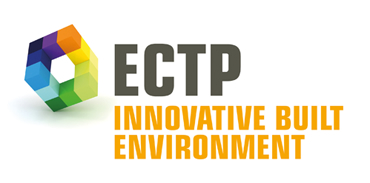Parliament vote on Horizon Europe and information on co-programmed partnerships
The European Parliament’s industry and research committee ITRE has just voted for Horizon Europe, the EU’s multiannual framework programme for research. This vote comes after EU research ministers adopted the programme last month and agreed 35% per cent of the total budget should be spent on research and innovation to underpin the EU’s climate change objectives.
The Parliament and Council reached an agreement last December on the €95.5 billion budget. The second part of the legislation, to be formally approved in the 26 April plenary, lays down the structure and the objectives of the programme, the internal distribution of the budget, the forms of EU funding and the rules for providing such funding. The new regulation also streamlines the European public private R&D partnerships and introduces the research missions, which are intended to advance breakthrough discoveries and innovations in strategic sectors.
There are 12 so-called 'co-programmed' partnerships. There are 16 'co-funded' partnerships between the Commission and research funding bodies in member states. Then they are 'institutionalised' partnerships bringing together the Commission, industry, and member states (these represent a longer-term commitment to the cause and they need to pass through the EU Council before they can come to life.)
The partnerships are funded by the collaborative projects pillar in Horizon Europe, which makes up more than half of the €95.5 billion research funding programme, as well as by contributions from industry and member states. Some Horizon Europe calls are already out, and the work programmes setting out the research calls for the next two years will be published in early May. But launching the partnerships is taking a little longer. The first eleven industry partnerships are expected to start up in June, but the Commission is yet to name the date.
Ten institutionalised partnerships are being rushed through the Council as the Portuguese Presidency wants to finish up as much of the legislation as possible during its term, which ends in June. The hope is to launch these partnerships by next year. In the meantime, industry is hoping to convince the Commission to publish draft work programmes with the calls for the institutionalised partnerships in advance, as early as September. This would give researchers clarity, ensuring they are aware of the topics before the legislation is settled, said Sophie Viscido, senior advisor for policy strategy and analysis at EARTO, an association of research and technology organisations (RTO).
Co-funded partnerships are still in the making and are not expected to start up until next year, with seven foreseen to first appear only in the 2023/24 work programme.
The list is not definitive yet. A 50th partnership on pandemic preparedness is being drawn up. The Commission has yet to decide whether this will be co-funded or co-programmed, but it is investing €2 million in the next two years to test out the waters. The project has been added to the strategic plan, meaning it is likely to launch by 2024.
The new legislation also establishes the EU’s own start-up fund, the European Innovation Council (EIC), which will award grants and make equity investments to help small and medium-sized companies scale up new technologies.
After the plenary vote at the end of the month, the programme will be implemented retroactively, meaning researchers who applied for funding in calls that have already been launched by the ERC (European Research Council) and EIC since 1 January, will be funded from the €95.5 billion budget.
Source: ECTP Secretariat












